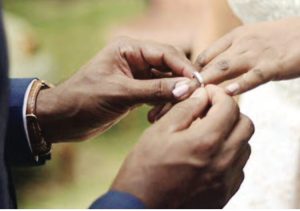
Court marriage in Nigeria – That’s what most Nigerians call it. But there is actually nothing like ‘court marriage’. While this may be a misinterpretation of having a legal marriage, what we have is ‘Registry marriage ‘or rather, ‘Marriage under the Act’.
There have been great misconceptions about Marriages under the act which has posed serious problem for newlyweds, couples, Nigerian couples that base abroad, and even the divorced.
Today, we will take you through the indepth understanding of Registry marriage and all that it entails.

So if you’ve been searching here and there for a grasp of this knowledge. Keep on reading.
Until something is well defined, its purpose is always misinterpreted. So, what exactly is a ‘Registry Marriage’ – or what you call a ‘court marriage.’

Registry marriage is officially recognised by the Federal Government of Nigeria as proof of a marriage contract between a couple. According to the law, Registry marriage is protected under the Marriage Act, Chapter 218 of Laws of the Federation of Nigeria 1990. There are two Federal Registries in the country which we shall be looking at as we go on.
Mind you, the proper place for the celebration of marriage is a Registry or a Licensed Place of Worship as the court only has the power to make issues of settlement, desolate marriages, or other legal remedies in and out of marriage.
The court doesn’t have the right to ‘wed’ or ‘join together’ anyone. They are not in the position to celebrate or conduct marriages.
Two Kinds Of Marriages Recognised In Nigeria
Generally, The Nigerian constitution only recognize two types of Marriage which are stated below.
- The Statutory Marriage – this is not necessarily a white wedding.
- Customary marriage (this includes the Islamic Marriage)
All You Need To Know About Court Marriage In Nigeria – Statutory Marriage
You can either wed customarily or statutorily and if you do both, the Statutory Marriage backed by ‘The Marriage Act’ completely overrides the other.
In a country like Nigeria, parties conduct a traditional (a variation of a customary marriage) before conducting a statutory marriage. Arguably for just to fulfil family obligations and to pay obeisance to traditional rites or to make peace thrive.
A statutory marriage has the flavour of the law and recognises just one man married to one woman. Meaning, if Polygamy is your aim and your religion or culture does not frown at more than one wife, then there is no need of conducting ‘a registry marriage’ or a marriage under the Act.
Conducting A Statutory Marriage In Nigeria
Conducting/celebrating a statutory marriage has the same uniform procedure whether in a registry or a licensed place of worship.
This means a statutory marriage can be celebrated in either of these two places;
- A registry
- A licensed place of worship. (e.g a church)
The Registry
The statutory marriage is conducted by a Registrar or a Minister of a licensed place of worship. Emphasis on LICENSED. This means that if you were legally joined together by a Registrar, there is actually no need for a Minister (your pastor, reverend, bishop, apostle, spiritual leader etc) to do same again. Vice versa. But we also understand the need especially in a religious society like ours to want a church to ‘bless’ your marriage even after a registry celebration. But note, one is enough and okay.
A licensed place of worship
We usually mistake a church wedding for a ‘statutory marriage’ and that’s very far from reality. We always advise that one ensure that their worship centres are licensed and if it isn’t, head to the nearest registry or LG headquarters to be joined by a Registrar.
It is a one-way matter. If your church is not licensed or if the license has been revoked by law, having a ‘church’ wedding there does not confer any legal status on a marriage.
Also note that a church being registered under CAMA does not necessarily make it licensed.
In summary
As long as you tied the knot in any of the Orthodox Churches particularly Anglican, Catholic, Methodist and so on you are issued a certificate of marriage which is same as that issued by the Court registry.
This means that you do not need to do marriage in the Registry – unless you wish to. The Orthodox churches are licensed places of worship. Your marriage certificate will be that of the Federal Republic of Nigeria pursuant to the Marriage Act, not that of the name of a church.
Currently, all local government areas have Registries and Registrars to conduct and celebrate marriages. So wherever you are in Nigeria, you are covered. The process is the same anywhere.
https://deedeesblog.com